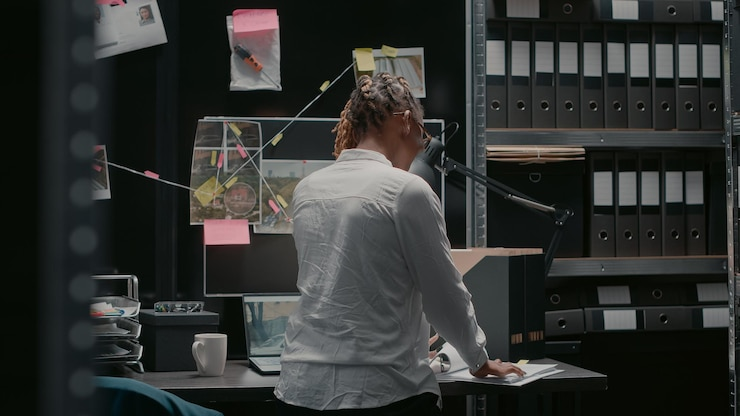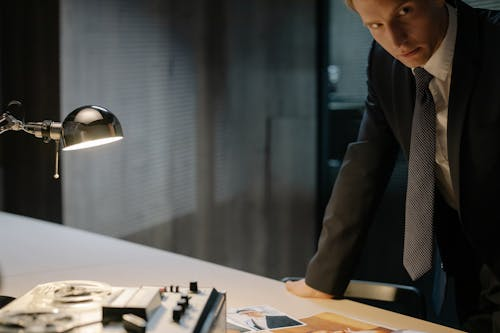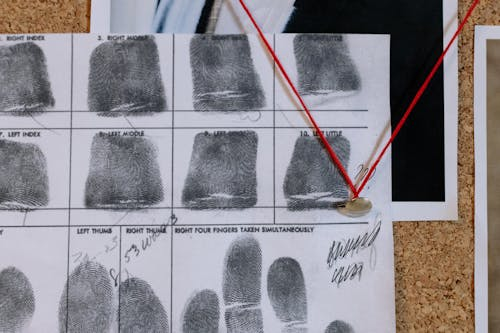In today’s courtroom, the weight of a witness’s testimony can hinge not on their presence at the scene, but on the depth of their technical expertise. As digital evidence has become ubiquitous—from emails and mobile device logs to security camera footage and encrypted drives—the role of the expert witness has evolved dramatically. No longer confined to fingerprints and ballistics, modern legal disputes often turn on the interpretation of zeroes and ones. In this environment, understanding what qualifies someone as a credible digital forensic expert—and how to vet that expert—is essential for judges, lawyers, and juries alike.
The Evolution of Expert Witness Testimony:
Historically, expert witnesses derived credibility from formal titles and affiliations: a medical doctor in a malpractice case or a certified accountant in a fraud trial. But as crimes and disputes increasingly involve digital components, legal teams have turned to specialists who can speak authoritatively about data integrity, chain of custody for electronic evidence, and the reliability of analytical tools. The transition from analog to digital has prompted courts to adapt standards for admissibility—requiring experts not only to hold relevant degrees and certifications but also to demonstrate mastery of rapidly changing technologies.
Defining Expertise in the Digital Age:
What makes someone an expert in a field as fluid as digital forensics? At its core, expertise combines formal education, hands-on experience, and peer recognition. A true digital forensic expert typically holds a degree in computer science, information security, or a related discipline, supplemented by industry certifications such as Certified Computer Examiner (CCE), Certified Forensic Computer Examiner (CFCE), or Certified Information Systems Security Professional (CISSP). However, credentials alone are not enough: real-world casework—ranging from data recovery on damaged drives to decrypting secured mobile phones—sharpens an expert’s judgment and bolsters credibility under cross-examination.
Core Qualifications of a Digital Forensic Expert:
When evaluating potential witnesses, legal teams should look for several key qualifications:
- Technical Certifications and Training:
Specialized credentials validate proficiency in specific tools and methodologies. For example, digital forensic consultants often earn credentials in Cellebrite interrogation software for mobile device forensics or EnCase for computer analysis. - Practical Case Experience:
A digital forensic consultant who has assisted law enforcement in high-profile investigations or supported corporate incident response brings invaluable courtroom-tested insight. - Peer-Reviewed Publications and Teaching:
Sharing findings at conferences or publishing in forensic journals signals a commitment to advancing the field. Courts tend to view peers’ recognition as a hallmark of competence. - Continuing Education:
Technology evolves rapidly; experts must stay current with emerging file systems, cloud-based evidence sources, and anti-forensic techniques.
Vetting an Expert Witness
Even with impressive résumés, not every candidate is courtroom-ready. Effective vetting involves:
- Examining Past Testimony:
Reviewing deposition transcripts and previous trial appearances reveals an expert’s clarity, demeanor, and resilience under cross-examination. - Assessing Methodological Rigor:
Experts must adhere to established frameworks—such as ensuring a proper forensic image of a hard drive or maintaining a documented chain of custody for video evidence. Deviations raise red flags. - Verifying Impartiality:
A digital forensic expert retained exclusively by one side—especially in repeated engagements—may be perceived as biased. Courts value witnesses who demonstrate strict adherence to objective analysis over advocacy.
Statistics underscore the importance of rigorous vetting: according to IBM, digital evidence now appears in more than 90% of criminal investigations, making expert opinions central to modern prosecutions and defenses. Meanwhile, the global digital forensics market was valued at USD 10.12 billion in 2023 and is projected to grow at a compound annual growth rate of 15.1% through 2030, reflecting organizations’ urgent demand for credible testimony in both criminal and civil proceedings.
The Importance of Impartiality and Credibility:
An expert’s ultimate value rests on trust. Judges typically instruct juries to weigh expert testimony carefully, evaluating not only the witness’s qualifications but also potential conflicts of interest. A digital video forensics specialist who consults equally for defense and prosecution is often regarded as more objective than one whose practice skews heavily toward one side. Transparency in billing practices, clear declarations of prior engagements, and willingness to submit to peer review further enhance credibility.
Challenges Unique to Digital Evidence:
Digital evidence presents distinct hurdles that can undermine expert testimony if not handled properly:
- Data Volume:
Modern cases may involve terabytes of logs, requiring experts to filter relevant artifacts without overlooking critical information. - Anti-Forensic Techniques:
Sophisticated actors may employ encryption, secure deletion tools, or steganography. A seasoned digital forensic consultant anticipates these tactics and employs countermeasures. - Tool Validation:
Courts have questioned the reliability of certain forensic software. Experts must demonstrate that their chosen tools produce repeatable, scientifically sound results—and understand their limitations.
Inadequate preparation can yield misleading conclusions. For instance, mishandling video frames during forensic video analysis might produce artifacts mistaken for tampering, jeopardizing a case’s outcome.
Role of Specialized Services:
Given these complexities, many law firms and corporations turn to comprehensive digital forensic services. These providers offer end-to-end support—from initial data acquisition and forensic imaging to advanced analytics and courtroom presentation. Within this ecosystem:
- Forensic Video Analysis helps clarify critical moments in surveillance footage by enhancing resolution, synchronizing multi-camera systems, and authenticating timestamps.
- Digital Video Forensics experts leverage frame-by-frame analysis to detect editing or manipulation—ensuring that video evidence stands up to judicial scrutiny.
- Data Forensic Experts specialize in recovering and interpreting data from damaged or encrypted sources, such as hard drives submerged in water or smartphones locked with complex passcodes.
These niches often overlap. A single provider might house a digital forensic consultant equipped to handle audio authentication, mobile device forensics, and network log analysis—delivering a unified report that weaves together insights from multiple domains.
Building a Robust Expert Report:
An expert’s written report serves as the foundation for testimony. Effective reports:
- Explain Technical Concepts in Plain Language:
Juries benefit when complex processes—like hash-based integrity checks or binary file carving—are broken down into everyday analogies. - Document Every Step:
From acquisition tools used to hash values obtained, meticulous notes preempt challenges to evidence integrity. - Include Visual Aids:
Diagrams of data flow, annotated video stills, and timelines help non-technical stakeholders grasp findings quickly.
When reports lack transparency—failing to cite software versions or omitting raw data exports—opposing counsel can exploit these gaps, undermining the witness’s credibility.
The Role of Courtroom Demeanor in Expert Credibility:
While technical proficiency is essential, a digital forensic expert must also command the courtroom with confidence and clarity. Jurors may not remember acronyms or analytical tools, but they’ll remember how the expert handled tough questions. Body language, tone, and the ability to remain composed under pressure contribute significantly to perceived trustworthiness. A fidgeting or evasive witness, no matter how qualified, risks undermining the case. Legal teams often work with experts ahead of trial to rehearse cross-examination scenarios, ensuring the expert communicates findings clearly and professionally without appearing biased or overly defensive.
Cross-Disciplinary Expertise: A Growing Necessity:
Today’s legal challenges often involve intersecting data streams, requiring experts with cross-disciplinary skill sets. A digital forensic consultant investigating a cyber breach may also need to understand finance to detect digital fraud patterns or work with legal teams to interpret regulatory compliance implications. The ability to translate findings across industries elevates an expert’s value in court. This hybrid knowledge allows the expert to offer more than just technical analysis—it allows them to tell a cohesive story that resonates with judges and juries. As cases grow more complex, experts who can bridge multiple disciplines will become increasingly indispensable.
Ethics and Integrity in Digital Forensics:
In an age of manipulated data and misinformation, the ethical integrity of a data forensic expert is paramount. Experts must draw a clear line between fact and interpretation, even if findings don’t favor the client who hired them. Accepting assignments only within their realm of expertise, disclosing potential conflicts, and refusing to alter conclusions under pressure distinguish credible experts from mercenary ones. This ethical clarity doesn’t just impact individual cases—it shapes the reputation of digital forensic services as a whole. Trust in digital evidence depends on the honesty of those interpreting it, making integrity a cornerstone of credible testimony.
Legal Standards and Admissibility:
In the United States, admissibility of expert testimony hinges on standards such as Daubert and Frye, depending on jurisdiction. Under Daubert, for example, judges act as gatekeepers, evaluating whether the methodology is scientifically valid and whether it has been peer-reviewed or widely accepted in the field. A data forensic expert called upon for network intrusion analysis must demonstrate that their methods have withstood scrutiny in academic or professional circles.

Internationally, courts vary in their approach, but the underlying principle remains constant: transparency and reproducibility. Experts should be prepared to provide detailed protocols and, where necessary, grant access to raw data for independent verification.
Integrating Demonstrative Evidence to Enhance Testimony:
Expert witnesses often bring raw data to the stand, but turning numbers and files into compelling visuals can significantly bolster a digital forensic expert’s impact. By preparing clear timelines, annotated screenshots, or interactive diagrams, the witness helps jurors follow complex sequences—such as the steps taken during a forensic video analysis or the process of carving deleted files from a hard drive. These demonstrative aids not only clarify technical findings but also reinforce the expert’s authority. When jurors can see how evidence was collected and interpreted, they’re more likely to trust the conclusions drawn by digital forensic services, making the testimony both informative and persuasive.
Future Trends in Expert Testimony:
As technology advances, expert witnesses will need to expand their skill sets. Emerging areas include:
- Cloud-Native Forensics:
With data increasingly stored across distributed servers, experts must navigate provider-specific APIs and privacy regulations. - Artificial Intelligence in Evidence Analysis:
Machine learning tools can flag anomalous transactions or deepfake videos, yet their opacity raises new questions about explainability in court. - Blockchain Analytics:
The rise of cryptocurrencies demands specialists capable of tracing transactions across public ledgers without compromising user privacy.
The next generation of digital forensic experts will blend deep technical knowledge with legal acumen—communicating novel concepts clearly to judges and juries.
Conclusion:
In an era where digital footprints often speak louder than eyewitness accounts, the credibility of an expert witness can make or break a case. By insisting on rigorous qualifications, transparent methodologies, and proven impartiality, legal teams safeguard the integrity of justice. When you require trusted testimony—from forensic video analysis and digital video forensics to mobile device investigations and data recovery—turn to trusted digital forensic services.

Eclipse Forensics stands at the forefront of courtroom-ready expertise. Certified in forensic audio analysis, forensic video analysis, mobile device forensics, and expert witness testimony in FL, their specialists deliver clear, credible testimony backed by meticulous analysis and unwavering impartiality.
Secure the expert insight your case deserves—contact Eclipse Forensics today.

